Steve Jobs Biography Hints At What's To Come From Apple: Textbooks, TVs And More
by Steve Jobs Bio and Jobs Biography, huffingtonpost.comOctober 22nd 2011

While at the helm of Apple, Steve Jobs was notoriously tight-lipped about his company's plans. Secrecy was of the utmost importance -- and he would lie regularly, assuring the world Apple had no plans for a certain product, just months before he'd release precisely such a device.
Yet Walter Isaacson's biography of Jobs, which was based on more than forty interviews with the Apple co-founder, lets slip several hints at what may be to come from the company and pulls back the curtain on the balance of power among the executives Jobs installed at Apple.
Jobs had ambitions to reinvent television and textbooks, according to Isaacson’s biography.
“I’d like to create an integrated television set that is completely easy to use,” Jobs said.
As the Washington Post first noted, Isaacson writes that Jobs “very much wanted to do for television sets what he had done for computers, music players, and phones: make them simple and elegant.”
“It would be seamlessly synced with all of your devices and with iCloud,” Jobs told Isaacson. “It will have the simplest user interface you could imagine. I finally cracked it.”
Apple currently offers a set-top box, Apple TV, that allows users to play content from iTunes and other media providers on their television sets. Yet rumors have circulated for years that an Apple-branded television with more robust integration is in the works. The company has repeatedly dismissed the product as a mere "hobby."
Citing unnamed sources “familiar with the matter,” the Wall Street Journal reported earlier this year that Apple was at work on “new technology to deliver video to televisions and has been discussing whether to try to launch a subscription TV service.” Piper Jaffray’s Apple analyst Gene Munster also predicted that a number of signs, such as the launch of Apple’s iCloud service, Apple’s registration of TV-related patents, and new deals Apple has struck with suppliers, point to the release of an Apple television set by late 2012 or early 2013. However, Munster has previously argued that 2011 would be the year of the Apple-branded television — and users are still waiting for the mythical device.
In a 2010 interview, Jobs said he was finished working on the TV industry. “Smarter people than us will figure it out,” he said –- a mere three months before unveiling the second generation of the Apple TV.
Isaacson’s biography reveals that Jobs also targeted the textbook industry for transformation and met with major textbook publishers to discuss a partnership with Apple.
“He believed it was an $8 billion a year industry ripe for digital destruction,” Isaacson writes. “His idea was to hire great textbook writers to create digital versions, and make them a feature of the iPad.”
“The process by which states certify textbooks is corrupt,” Jobs told Isaacson. “But if we can make the textbooks free, and they come with the iPad, then they don’t have to be certified. The crappy economy at the state level will last for a decade, and we can give them an opportunity to circumvent that whole process and save money.”
It would hardly be the first time Jobs would take on the challenge of revamping education: NeXT, the company he founded in 1985 after his ouster from Apple, also had ambitions of providing new tools for the classroom, though academic institutions balked at the NeXT computer's $6,500 pricetag. Jobs’ wife Laurene Powell has been actively involved in education reform for more than a decade. In 1997, she co-founded College Track, a non-profit that aims to increase the number of low-income students who graduate from high-school and go on to receive college degrees.
Isaacson’s biography also provides a glimpse into Apple’s corporate politics and the executives who now control its fate.
Some doubt whether Tim Cook, who took over as CEO of Apple following Jobs’ resignation in August, can emulate Jobs’ vision and question whether a former COO known for streamlining supply chains can pioneer the industry-changing devices expected of Apple.
Jobs, who nominated Cook to be his replacement, may have had his own reservations. He admitted to Isaacson, “Tim’s not a product person, per se.”
Yet Jobs also had high praise for Cook, saying he could be a better negotiator than Jobs.
"[W]e started to work together, and before long I trusted him to know exactly what to do,” Jobs told Isaacson.
Isaacson's biography suggests that it is Jonathan Ive, Apple's senior vice president of industrial design and the architect of the company's sleek and iconic devices, who may be left with the most power — which is exactly the way Jobs intended it, according to the book.
“If I had a spiritual partner at Apple, it’s Jony,” Jobs said. “He has more operational power than anyone else at Apple, except me. There’s no one who can tell him what to do, or to butt out. That’s the way I set it up.”
Original Page: http://www.huffingtonpost.com/2011/10/22/steve-jobs-biography_n_1026392.html
Shared from Read It Later